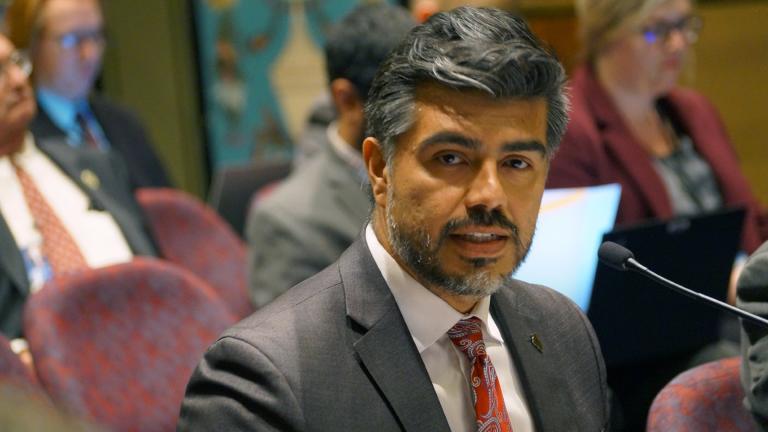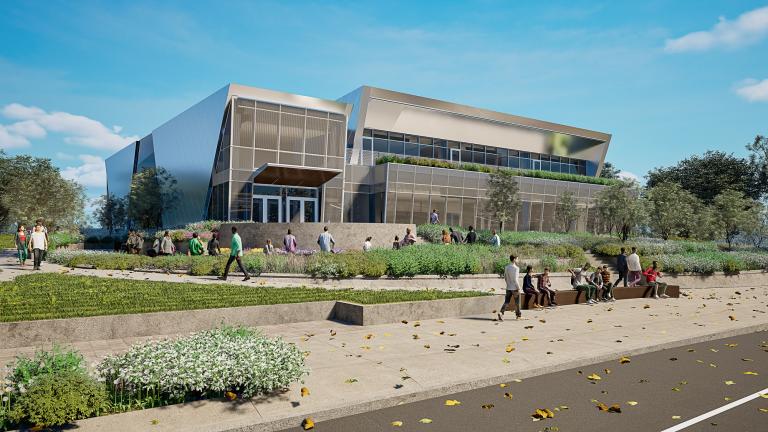Chicago has been called the most segregated city in the country. And that segregation can extend to its suburbs.
Last month, the Trump administration announced it would end an Obama-era housing rule meant to eliminate racial disparities in the suburbs.
“The Affirmatively Furthering Fair Housing rule is a measure to undo decades of federal, state and local discriminatory practices resulting in racially and ethnically segregated communities,” said John Petruszak, executive director of the South Suburban Housing Center.
The rule required local governments receiving money from the Department of Housing and Urban Development (HUD) to identify and address patterns of racial segregation outlawed by the Fair Housing Act of 1968, which expanded the Civil Rights Act of 1964 to prohibit discrimination in housing, including in its selling, renting and financing.
“It sets us back many, many decades,” said Evelyn Sanguinetti, executive director of HOPE Fair Housing Center and former lieutenant governor under Gov. Bruce Rauner. “Simply put, HUD’s move, it endorses residential segregation.”
Discriminatory zoning practices and redlining contributed to housing segregation, and discrimination in housing persists today.
“It exists today as much as it existed back then,” Sanguinetti said. “Problem is, wrongdoers have gotten much more creative to be able to do the same thing.”
Athena Williams, executive director of the Oak Park Regional Housing Center, said some of her clients have come to the center with complaints of discrimination.
“We’ve had varying conversations from our clients that have come into our office sharing that they have been discriminated against, mostly because they’re voucher holders, also discriminated against because of their race,” Williams said. “So we receive lots of complaints … and as a fair housing agency, we work to really try to alleviate those issues with our partners such as HOPE Fair Housing.”
In a series of tweets last week, Trump said the move would increase property values and reduce crime in the suburbs. However, concerns over affordable housing increasing crime and decreasing property values is unfounded, and it comes as critics say the president is trying to rally support among white suburban voters.
Housing Secretary Ben Carson said the rollback was needed because the rule wasn’t effective.
“After reviewing thousands of comments on the proposed changes to the Affirmatively Furthering Fair Housing (AFFH) regulation, we found it to be unworkable and ultimately a waste of time for localities to comply with, too often resulting in funds being steered away from communities that need them most,” Carson said in a press release on July 23.
However, Petruszak says the rule was the most effective measure HUD had to enforce the protections of the Fair Housing Act, and he’s concerned about the consequences of the rollback.
“What the rollback of this regulation will do will take away the relief that we need to address the impending [COVID-19] crisis that is coming once this crisis is over,” Petruszak. “The housing markets will be stagnant, and it will hurt communities of color the most. Communities on the south Cook area, neighborhoods on the West and South side of the city, will have been impacted hardest by the health and economic consequences of the pandemic, and they’re gonna suffer the economic injury. We need tools like this, like the former act, to deal with these problems.”
...Your housing prices will go up based on the market, and crime will go down. I have rescinded the Obama-Biden AFFH Rule. Enjoy!
— Donald J. Trump (@realDonaldTrump) July 29, 2020








